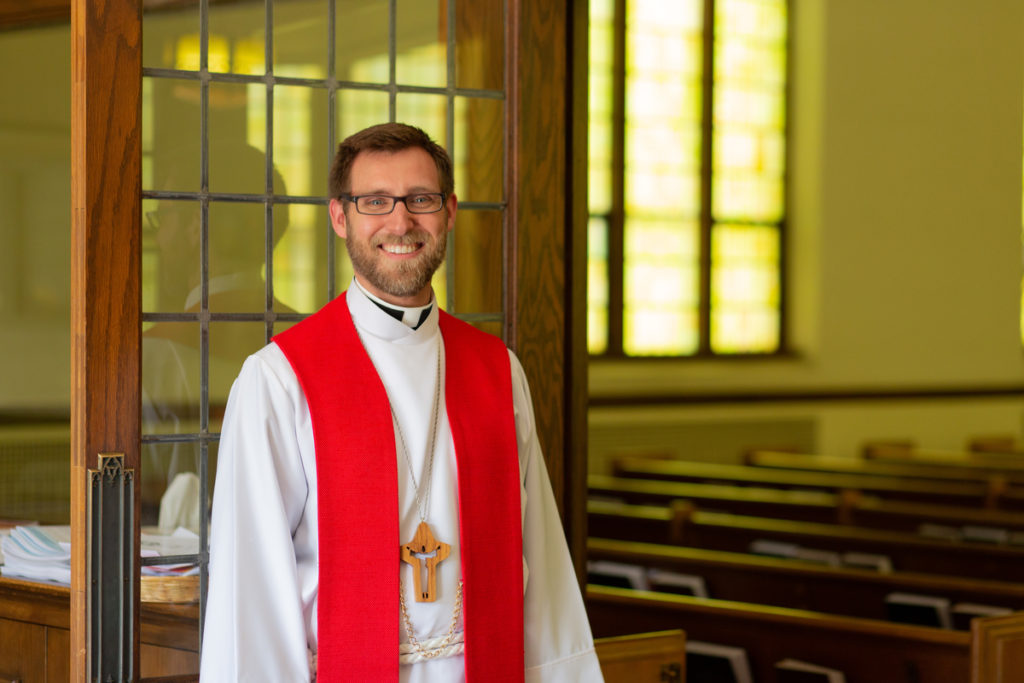It has, for decades, been an incredibly unfair reality faced by smaller rural and inner-city congregations. In a denomination that has traditionally insisted that viable, healthy congregations must be led by a resident, ordained pastor, the number of pastors willing to serve in these settings have often been “few and far between.” Even back when there were an abundant number of seminary graduates, the majority of those graduates often showed little or no interest in serving churches located in such communities. And this unfortunate attitude was not limited to graduating seminary students looking for a first call; it was also common among already ordained, serving pastors looking for their next call.
So what did these rural and inner-city congregations do when even new seminary grads had little interest in their calls? They waited. And they knew that eventually—if they waited long enough—their bishop or district president would find them a new graduate whom they could “take under their wing” and train. Unfortunately, as soon as these first-call pastors were “trained” they would usually move on, within two or three years, to a larger church in a suburban setting. Then the congregation’s pastoral search process would begin once more.
It used to be true—decades ago—that there was still an abundant supply of seminary graduates coming through the “pipeline.” As a result, the national Lutheran church bodies could continue to insist—or at least imply—that healthy and viable congregations were, by definition, led by an ordained pastor. But here we are in 2023. And unlike decades back, there are far fewer seminary graduates; Boomer pastors have already or soon will be retiring; and smaller rural congregations are more often than not located in declining communities. (Communities where the median age of their residents—and the congregation’s members—is in the late 50’s or 60’s.) As a result, that traditional Lutheran ministry model—that the only viable congregation is one that can find and call an ordained pastor—simply has to change. Unfortunately many of these congregations have been taught the false dichotomy that unless they can find and call an ordained pastor they might as well close their doors.
And that false dichotomy is not consistent with either the New Testament understanding of the church, nor with Martin Luther’s teaching regarding the priesthood of all believers.
Tragically most Lutheran church bodies have failed to adequately model or advocate for intentional, long-term lay-led congregational ministries when there is no reasonable expectation that a resident pastor will ever be “called and installed.” These congregations need a third option; not just the choice between an unending pastoral search process or closing their doors. That “third option” is to become a truly lay-led congregation; a priesthood of believers not just in theory, but in terms of ministry practice.
Here is the stark truth of what is happening “out there” among many of our smaller congregations: They have been looking for a pastor for years. In fact, some of them have gone three, four or more years without a resident pastor. The longer they assume that such a pastor is “their only hope,” the more likely they will not survive as an organized faith community. And they need to know that at least until the last Boomer pastor retires in the 2030’s, the number of pastoral vacancies will only grow, and grow dramatically.
Finally, these churches need to know that the work of the Holy Spirit in congregational life and ministry is not dependent on the leadership and presence of a resident, ordained seminary graduate. This was true in the time of the early Apostolic church almost 2,000 years ago, and it is still true today.
“As you come to him, the living Stone—rejected by men but chosen by God and precious to him—you also, like living stones, are being built into a spiritual house to be a holy priesthood, offering spiritual sacrifices acceptable to God through Jesus Christ” 1st Peter 2:4-5 (NIV).




















My wife and I have experience with a few of these small churches. Finances are also a part of this problem. Even a 2 point call cannot always support an ordained pastor.
The LCMC model is the best opportunity for these small churches.
BUT..,,they will have to be prepared to give up a ” pure ” Lutheran church as they knew it. The lay pastor will possibly not come from a Lutheran background or training. The church can become a ” community” church with a much less Lutheran flavor. Most formality will be gone.
BUT…. this change can not only ” save ” a dying church but actually grow the church with non Lutherans and with KIDS !
From a long distance with occasional visits and watching on line, I have seen this happen. While this would not be my 75 yr old cup of tea, knowing the situation, this is the best thing that could happen for this congregation.
Questions ?
Comments ?
In response to the previous comment, I would say that there is another way. We need to focus on training lay leaders in orthodox Lutheran theology. There are already options in place, such as the Lay Leader Certification program through St. Paul Lutheran Seminary. (https://semlc.org/) Classes can be taken online, at the person’s own pace. Scholarships are often available to help with the costs, which are already considerably lower than attending a physical seminary.
I am a product of small rural churches and of a pastor who had a vision 20 years ago of the need for trained lay leaders. Before receiving my M.Div. and becoming a full-time ordained pastor, I was a trained and certified parish ministry associate for 15 years. The pastors of our four-point parish organized a group of lay people to be trained, and most are still serving today, helping these small churches continue to share the gospel. This model of raising up people from within the local congregation is entirely Biblical.
In the LCMC, I was able to serve as a “contract call” pastor until I received my M.Div and was then certified. Some congregations may be served permanently by a lay leader, but there is no reason that person can’t be trained in basic Lutheran theology and practice.